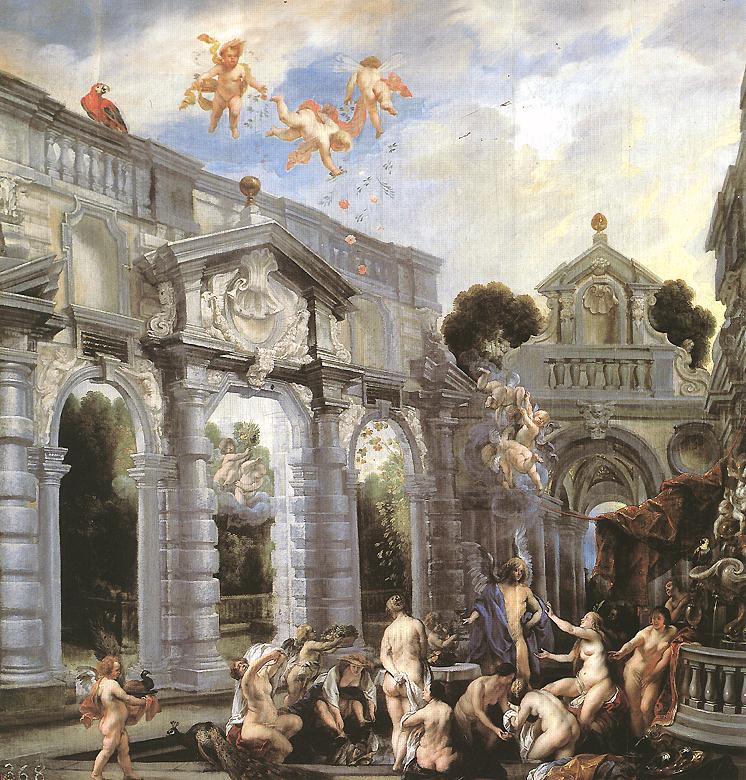Description
Painting Nymphs at the Fountain of Love by artist Jacob Jordeens is an impressive work, noted for its unique artistic style and detailed composition. The work, whose original size is 131 x 127 cm, represents a group of nymphs in a beautiful garden surrounded by fountains and waterfalls.
Jordeens' artistic style is evident in this work, as he uses a detailed and realistic painting technique that makes each character and object appear almost three-dimensional. The colors used in the work are vibrant and rich, giving it a sense of life and movement.
The composition of the painting is impressive, as Jordeens manages to create a sense of depth and perspective in the work. The nymphs are arranged on different levels, which creates a sense of movement and dynamism in the work. Also, the inclusion of the fountain and waterfalls in the painting makes the viewer feel like they are looking at a realistic and beautiful scene.
The story behind the painting is interesting, as the work is believed to have been commissioned by King Philip IV of Spain for his personal collection. The work was created in the 17th century and has become one of Jordeens' most famous works.
One of the lesser known aspects of the painting is that Jordeens used his wife and daughters as models for the nymphs in the work. This gives the painting a feeling of intimacy and familiarity, making it even more special.
In summary, the painting Nymphs at the Fountain of Love by Jacob Jordeens is an impressive work, noted for its unique artistic style, detailed composition, and vibrant colors. The story behind the work and the use of the artist's family as models make the painting even more special and meaningful.

